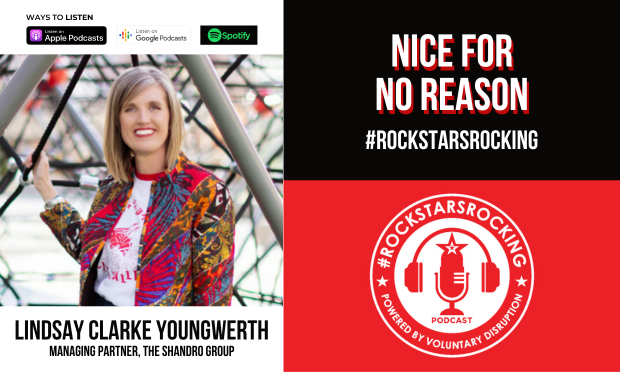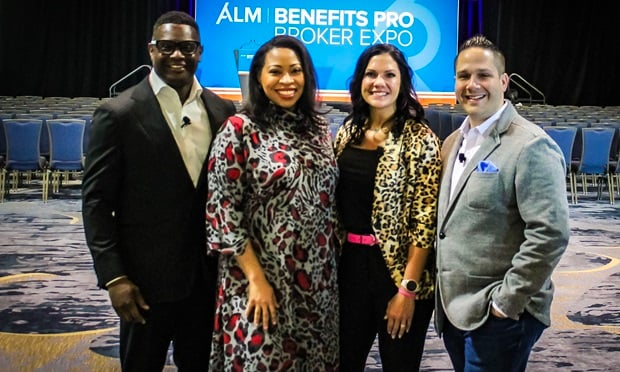 The millennial generation — whichgenerally refers to individuals born between 1980-1996 — continuesto fascinate businesses. Millennials are now the biggest cohort in the workforce and areopening the majority of small businesses. Thatmeans they hold a lot of power, both through the products andservices they purchase and by way of social influence. Companiesare motivated to understand millennials and win them over.
The millennial generation — whichgenerally refers to individuals born between 1980-1996 — continuesto fascinate businesses. Millennials are now the biggest cohort in the workforce and areopening the majority of small businesses. Thatmeans they hold a lot of power, both through the products andservices they purchase and by way of social influence. Companiesare motivated to understand millennials and win them over.
That is not an easy task, considering millennials show high levelsof distrust in major institutions and most businesses. The healthinsurance industry, which struggles with public opinion more broadly, hasa long way to go in terms of gaining millennials' business andtrust. Below are three factors they should consider to convincemillennials decision-makers that health insurance is an importantpurchase.
|Costs are a bigger concern than for othergenerations
Millennials are more concerned with costs than othergenerations. Many young adults are saddled with student loan debtswhile at the same time, salaries have largely stagnated and costsof living continue to increase. Millennial business ownersunderstand these struggles because many of them have experiencedthem personally. Many millennials would rather go without healthinsurance than enroll in an unaffordable plan, especially sincethey are often relatively healthy and may not see an immediate needfor health care services.
|In order to convince millennial business owners that healthinsurance makes sense for them, health insurers will have to provetheir value. Insurers need to persuade millennial businessowners of the short-term and long-term benefits. They should createtargeted, relatable ads that emphasize coverage of preventiveservices, which can reduce costly health care services down theroad. Millennials treat health and wellness as a daily, activepursuit, so this message may resonate well with them. Smallbusinesses should also view health benefits as an appealing incentive inorder to attract and retain millennial talent.
|Transparency is crucial for millennials.
|While costs are important, millennials also place a high value onother brand characteristics like transparency. Considering the highlevels of distrust among this generation, it makes sense thatmillennials want clear and honest information.
|In a dense and complicated industry like health insurance,companies can benefit from making information as simple aspossible. It is especially important to be clear about pricingstructure, so that potential customers can quickly understand whatplan benefits include and don't include. Insurance providersshould also utilize social media and other channels to communicatewith millennials and make it clear that they care aboutmembers. According to Ambassador, 71 percent of consumers are morelikely to recommend a brand after having a positive experience withthem on social media.
|They prefer digital experiences
Millennials grew up with technology and are comfortableusing the Internet and their smartphones for all sorts of things,from banking to shopping. Taking care of their health is noexception — millennials are more likely to engage with insurersdigitally and use telehealth services than older age groups.Millennials are coming to expect these capabilities, and somecompanies are doing better than others. For example, millennials'retail expectations are based on the ones they have with Amazon,Spotify, Airbnb, and others.
|Insurers who focus on providing more streamlined digital services,like e-commerce marketplaces, online portals, and subscriptions tomobile health solutions, will be in a better position to win overmillennial consumers.
|Conclusion
To appeal to more millennials, health insurers will have to adapttheir business strategies to prove their value, increasetransparency, and provide more digital offerings. Millennials areskeptical and cost-conscious, but they also care about their healtha great deal. By meeting or exceeding millennials 'expectations, companies can gain loyal customers and increase thenumber of millennials who are insured.
Complete your profile to continue reading and get FREE access to BenefitsPRO, part of your ALM digital membership.
Your access to unlimited BenefitsPRO content isn’t changing.
Once you are an ALM digital member, you’ll receive:
- Critical BenefitsPRO information including cutting edge post-reform success strategies, access to educational webcasts and videos, resources from industry leaders, and informative Newsletters.
- Exclusive discounts on ALM, BenefitsPRO magazine and BenefitsPRO.com events
- Access to other award-winning ALM websites including ThinkAdvisor.com and Law.com
Already have an account? Sign In
© 2024 ALM Global, LLC, All Rights Reserved. Request academic re-use from www.copyright.com. All other uses, submit a request to [email protected]. For more information visit Asset & Logo Licensing.








